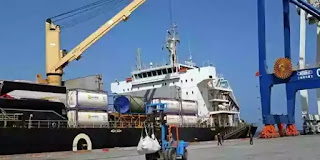I’m not a very good engineer myself but I know people that are. I’m writing this article after witnessing numerous cases of brilliant CGPA holders earning pennies or being completely unemployed. This is for all Pakistani engineering graduates who've gone through the agonizingly painful studies of four years or more.
Now I know job hunting isn’t a piece of cake for any fresh graduate, but I believe - and I don’t care if you disagree because, thug life -that it's very difficult to make a career strategy if you’re an engineer, especially in Karachi. I'm not trying to discourage you to take on engineering studies, but you should be aware that it's not going to be a walk in the park either.
So if you're thinking of becoming an engineer in Pakistan, hear me out...
1) You Have To Be an Engineering Wizard:-
Granted, it takes skills to land any good job, but I’ve seen mediocre BBA students landing a 30k job easily. But ask any engineer in Karachi and they’ll tell you how much they have to study before a relevant engineering job interview.
It’s like they expect us to build a new energy source or discover a new element. The guy asking questions in the interview either just googled up 'Top Ten Toughest Questions that you can ask Engineering Interviewee to Cause Irreparable Trauma' or has spent 300 years in the field. Either way, they aren’t paying you enough anyway.
2) You Get an Internship with a Hollow Job Promise:-
Google this and you’ll find ten thousand articles about how companies use hundreds of interns to get the work done cheaply. But boy, do things get really bleak if you’re an engineer!
Most companies in Karachi have a very small ratio of engineers. The same work that an engineer can do, they teach it to diploma holders and have them do it for half the pay. I have just one friend who made it to Tapal after working his heart out in the internship, but even he's surprised he got the job.
3) The Pay Scale Is Unbelievable:-
Sorry, but that’s unbelievably LOW, not high. The pay bracket in Karachi for a fresh graduate is right in between work-for-food-only to 18k per month. Gullible, freshly graduated engineers have been using the toxic sentence ‘Sir may kaam seekhna chahta houn’ in interviews for far too long, literally destroying the value of engineering skills.
Now when you go to an interview and demand 30k, which you should expect because you have a professional degree, you’ll be told ‘beta apko hum 15 hazaar dengay, kaam acha laga to 18 kardengay.' I swear to God this is an actual response I got when I interviewed at a very respectable and established telecommunication company.
4) No Research and Development, Almost All Over the Country:-
I’m sure my fellow engineers are familiar with the term 'Sales Engineer.' In Karachi particularly, companies are hiring a lot of engineers for this position because this country is slowly turning into a retail-oriented nation.
We don’t make cars, generators, electronic components or anything remotely related to engineering, at least not as much as the engineers we are making. So let me put this straight; there are patients for doctors, cases for lawyers, companies for BBA students (marketing, finance, HR, supply etc.) but there are only a handful of industries making things that require engineers? In the words of Donald Trump, 'EXCUSE ME!'
5) They Want Technicians, Not Engineers:-
Finally, if you do land a respectable engineering job, you’ll want to blow your brains off because the majority of them are about fixing one big machine over and over again. I know people who're earning lakhs of rupees and still planning to open their own workshop.
Like I said in the very beginning, I’m not a very good engineer but I can definitely understand a good engineer’s argument that the work is not at all creative. Why study so much when at the end of the day, you just have to fix something using a manual?
So, as per above mentiong points the government should encourage multinational companies to open up shops here in Pakistan so that the brilliant minds of engineers are put to good use. I may not be a good engineer but there isn’t much in the job market for me that motivates me to get better either.
.
https://amzn.to/2CCw1ee











